2024 Virtual World Autism Conference
Discover the 2024 Virtual World Autism Conference's empowering insights and key takeaways, fostering inclusion and support for individuals with ASD.

The Virtual World Autism Conference 2024
The Virtual World Autism Conference 2024 brought together experts, professionals, and individuals passionate about autism to share knowledge and insights. This groundbreaking event aimed to foster empowerment and create a global community dedicated to supporting individuals with autism spectrum disorder (ASD) and their families.
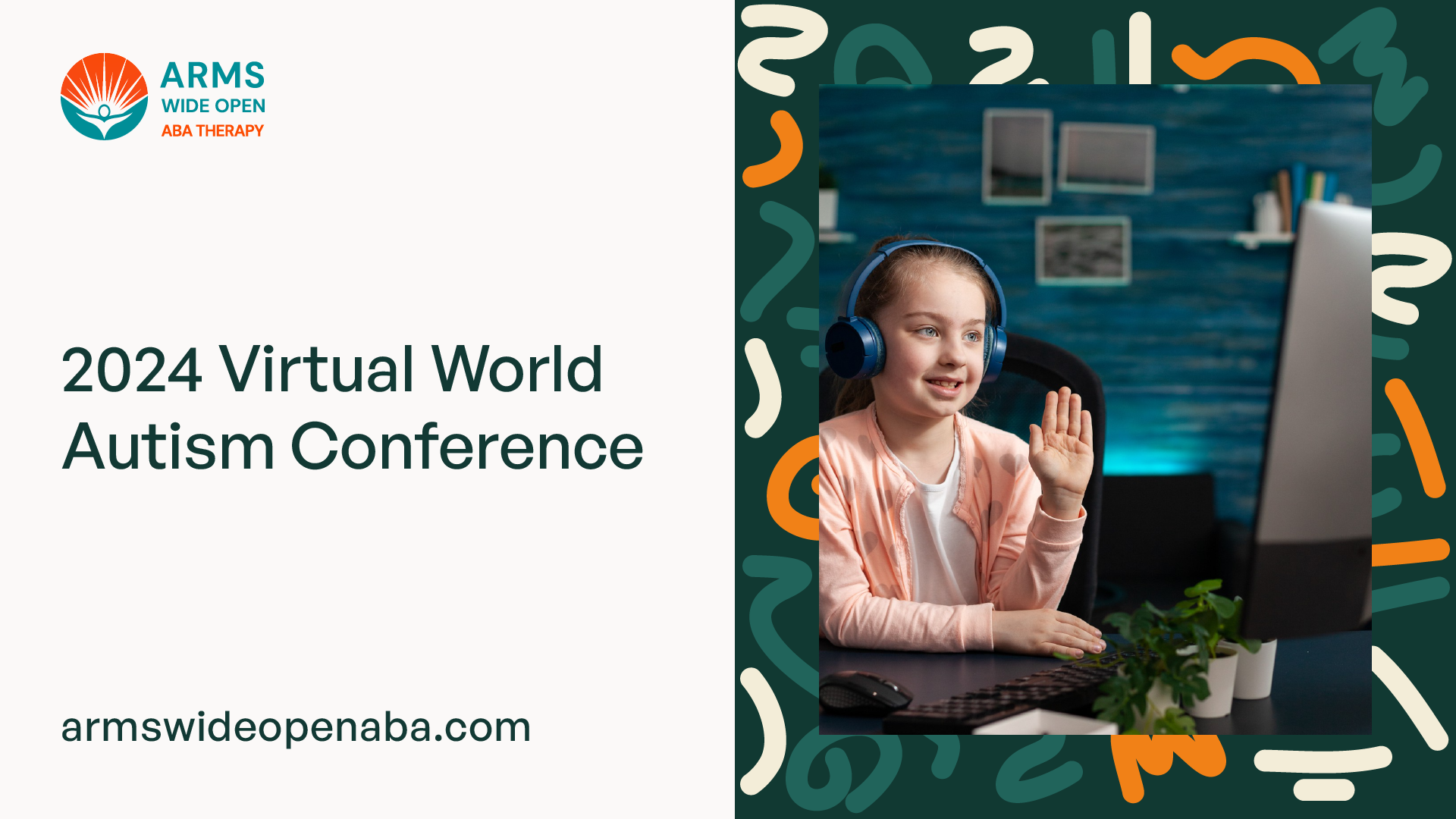
Introduction to the Conference
The 2024 Virtual World Autism Conference was a highly anticipated event that attracted participants from around the globe. It served as a platform for researchers, clinicians, educators, advocates, and individuals with autism to connect, collaborate, and learn from each other. The conference showcased the latest advancements in autism research, innovative approaches to support, and inspiring stories of success.
Overview of the Virtual Format
This year's conference embraced a virtual format, allowing participants to attend from the comfort of their own homes. The virtual platform provided a unique opportunity for individuals from diverse backgrounds and geographical locations to come together in a shared space. Attendees had access to a wide range of presentations, workshops, and interactive sessions delivered through live webinars, pre-recorded videos, and discussion forums.
The virtual format offered several advantages. It allowed for greater accessibility, eliminating barriers such as travel expenses and time zone differences. Participants could engage with the conference content at their convenience, ensuring flexibility and accommodating various schedules. The virtual platform also provided opportunities for networking and collaboration through virtual meetups and dedicated community spaces.
Advantages of the Virtual Format
Increased accessibility for participants worldwide
Flexibility to engage with conference content at own pace
Opportunities for networking and collaboration through virtual meetups
Elimination of travel expenses and time zone constraints
The Virtual World Autism Conference 2024 provided a dynamic and interactive experience for all attendees. It facilitated the exchange of knowledge, shared best practices, and fostered a sense of community among individuals passionate about empowering individuals with autism. The conference was a significant step forward in raising awareness, promoting acceptance, and enhancing support for the autism community.
Empowering Communities
Key Takeaways from the Conference
- Education and Awareness: Increasing education and awareness about autism is crucial in fostering understanding and acceptance. By educating community members, educators, and professionals about autism spectrum disorder (ASD), we can reduce stigma and misconceptions surrounding autism.
- Early Intervention: Early diagnosis and intervention play a significant role in improving outcomes for individuals with autism. Identifying autism at an early stage allows for timely support and intervention, which can positively impact a child's development and future prospects.
- Person-Centered Approaches: Emphasizing person-centered approaches involves recognizing the unique strengths and challenges of individuals with autism. By focusing on their individual needs, preferences, and abilities, we can foster a more inclusive and supportive environment.
- Collaboration and Partnerships: Building strong collaborations and partnerships among various stakeholders, including educators, healthcare professionals, policymakers, and community organizations, is essential for creating a comprehensive support system. Collaborative efforts can lead to more effective programs, services, and policies for individuals with autism.
Promoting Inclusion and Acceptance
- Education and Sensitization: Educating the wider community about autism and its characteristics helps to dispel misconceptions and promotes acceptance. Sensitization programs can be conducted in schools, workplaces, and community centers to foster understanding and empathy.
- Creating Inclusive Environments: Ensuring that public spaces, schools, workplaces, and recreational facilities are designed and modified to be inclusive for individuals with autism. This may involve providing sensory-friendly environments, accommodations, and accessibility features.
- Supportive School Programs: Implementing inclusive educational programs that provide appropriate support and accommodations for students with autism. This includes training teachers and staff on autism awareness, employing teaching strategies that cater to diverse learning needs, and fostering peer acceptance and support.
Enhancing Support and Resources
- Accessible Services: Ensuring that individuals with autism have access to comprehensive services, including diagnostic assessments, therapy programs, and support networks. This involves reducing barriers to access, improving affordability, and expanding service availability in rural and underserved areas.
- Parent and Caregiver Support: Providing support, information, and resources for parents and caregivers of individuals with autism. This includes support groups, training programs, and access to specialized services that address the unique challenges faced by families.
- Transition to Adulthood: Recognizing the need for continued support and resources as individuals with autism transition into adulthood. This includes vocational training, employment support, independent living skills training, and social integration programs.
Understanding Autism
Defining Autism Spectrum Disorder (ASD)
Common Challenges Faced by Individuals with Autism
- Social communication difficulties: People with autism may struggle with understanding and using verbal and non-verbal communication cues, making it challenging to initiate and maintain social interactions.
- Sensory sensitivities: Many individuals with autism have heightened sensitivities to sensory stimuli, such as loud noises, bright lights, or certain textures. These sensitivities can cause discomfort or distress and may require accommodations to create a more comfortable environment.
- Repetitive behaviors and restricted interests: Many individuals with autism engage in repetitive behaviors or have intense, narrow interests. These behaviors and interests can provide comfort and predictability but may also limit flexibility and social engagement.
- Challenges with executive functioning: Executive functioning skills, such as planning, organizing, and problem-solving, can be more challenging for individuals with autism. Difficulties in these areas can impact academic performance, daily routines, and independent living skills.
Importance of Early Diagnosis and Intervention
Promising Research and Innovations
Breakthroughs in Autism Research
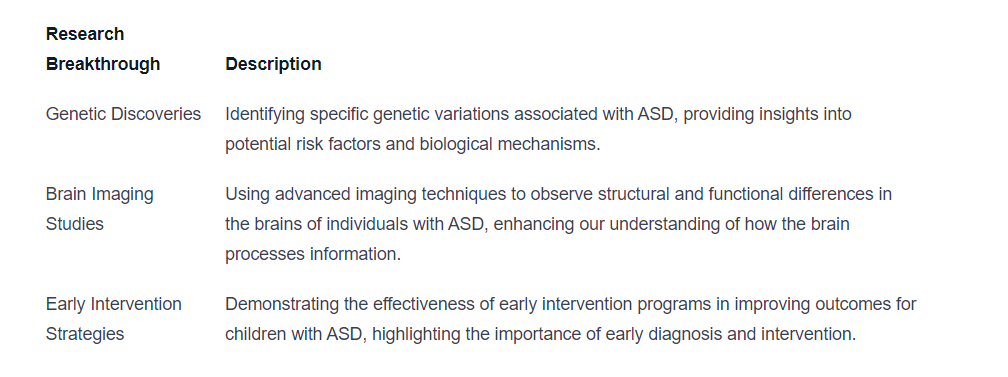
Innovative Approaches to Autism Support
The also showcased innovative approaches to supporting individuals with autism. Researchers, therapists, and educators shared their work in developing new strategies and interventions that aim to enhance the quality of life for individuals on the autism spectrum. Some notable innovative approaches discussed at the conference include:
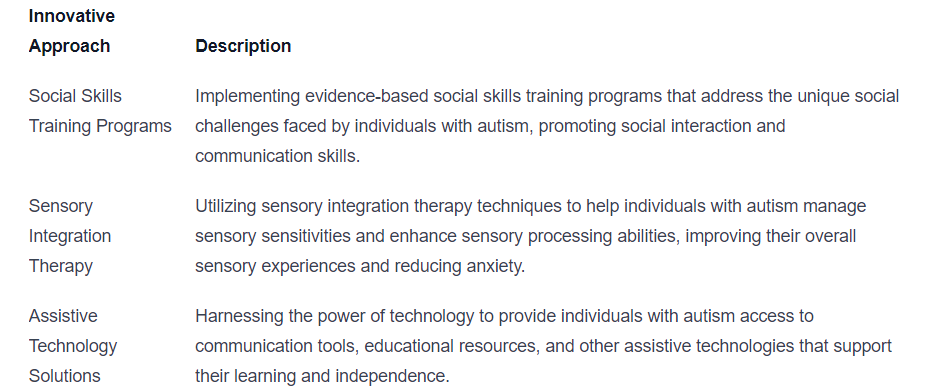
Technology and Autism: A Powerful Combination
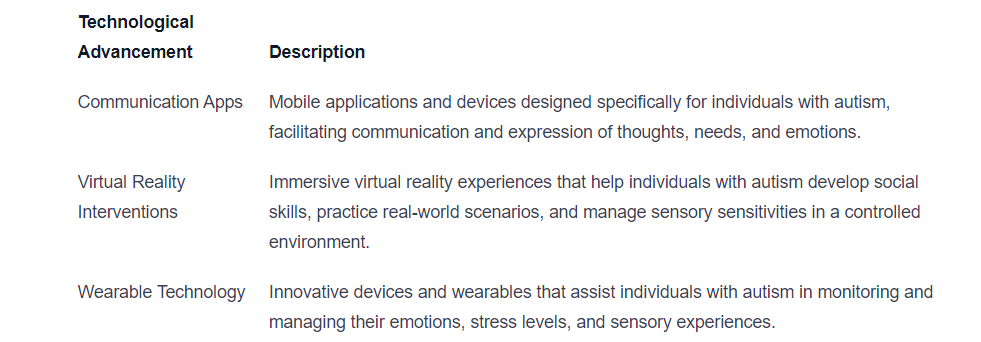
Building Stronger Communities
Advocacy and Policy Initiatives
- Lobbying for improved access to healthcare services, including early screening and diagnosis.
- Promoting inclusive education policies that provide appropriate support and accommodations for students with autism.
- Advocating for legislation that protects the rights and ensures the inclusion of individuals with autism in all aspects of society.
- Encouraging employers to adopt inclusive hiring practices and workplace accommodations for individuals on the autism spectrum.
Collaboration and Partnerships
- Collaboration between healthcare professionals, educators, and therapists to ensure a holistic and coordinated approach to autism support.
- Partnerships between advocacy organizations, community groups, and government agencies to develop and implement comprehensive support programs.
- Collaboration between researchers, clinicians, and industry experts to drive advancements in autism research, treatment, and technology.
Inspiring Stories of Success
Moving Forward
As the 2024 comes to a close, it's time to take the valuable insights gained from the event and put them into action within your own community. Moving forward, there are several key areas to focus on: taking action in your community, accessing resources and support for individuals and families, and recognizing the power of awareness and understanding.
Taking Action in Your Community
- Education and Awareness: Raise awareness about autism within your community by organizing educational events, workshops, or seminars. Encourage open and honest conversations to dispel myths and promote understanding.
- Support Networks: Establish or join local support networks for individuals and families affected by autism. These networks provide a safe space for sharing experiences, seeking advice, and accessing valuable resources.
- Advocacy: Become an advocate for autism by engaging with local policymakers, educators, and healthcare professionals. Advocate for inclusive policies, increased funding for autism support services, and improved accessibility in schools and public spaces.
Resources and Support for Individuals and Families
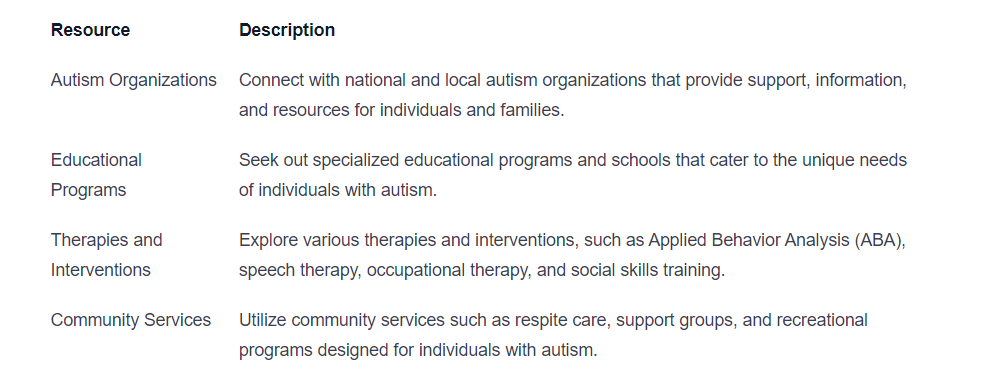
The Power of Awareness and Understanding
- Education Campaigns: Launch awareness campaigns in schools, workplaces, and community centers to educate people about autism and promote understanding and acceptance.
- Inclusive Events: Organize inclusive events and activities that bring together individuals with and without autism. Encourage participation, understanding, and celebration of neurodiversity.
- Training Programs: Provide training programs for educators, healthcare professionals, and employers to equip them with the knowledge and skills needed to support individuals with autism.
Sources
https://worldautismconference.org/home
https://worldautismconference.org/
https://usautism.org/world-autism-conference/
Similar articles
We’re here to help you

Our team is here to assist you in this process. Contact us for any assistance.
it’s easy to apply
We Accept Most Insurances
Our in-network insurance partnerships make ABA therapy more accessible to families throughout our service areas.







Our Insurance Process
We'll request your insurance details to help us verify your plan's coverage for ABA therapy. Once we've received this information, we'll walk you through your benefits, including copayments, deductibles and out-of-pocket maximums, so you know what to expect in advance.
Our team will then handle the preauthorization and all the necessary paperwork.
.svg)





















.jpeg)


































.jpeg)




.jpeg)







.jpeg)











.jpeg)
















